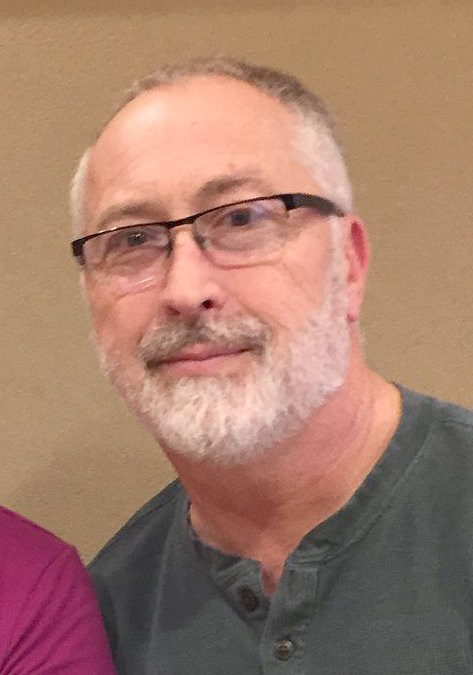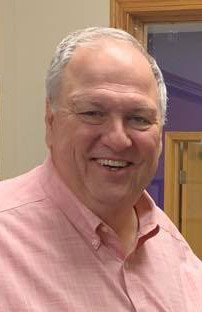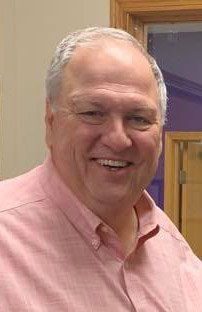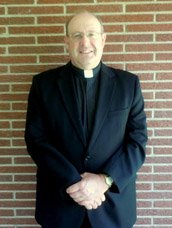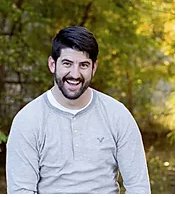Editor’s note: This is a sampling of how churches in Great Bend are responding to the current coronavirus crisis in concrete ways. The Tribune will continue to explore this in coming issues.
In times of crisis, faith communities are often on the front lines in helping their communities respond, and in the midst of the current coronavirus pandemic, Great Bend is no different.
The rapidly changing nature of the crisis, though, makes responding harder under the best of cirucmstances.
Churches that have the capability to are moving their Sunday worship services online.
Pastors and church leadership boards have begun to take steps to both meet the needs of their own congregation, both spiritual and practical, and take a lead role in ministering to the community they call home, while coming together as a faith community.
Here, in their pastors’ own words, are how some churches in Great Bend are approaching the current CVID-19 crisis:
The Rev. Tim Singleton, Lead Pastor, First Southern Baptist Church
“‘Handling’ is an interesting term. How do you put handles around something that changes every hour? How does one grip something that was distant but closing in?
“We here at First Southern are listening to our government officials, caring for our church, and community. Right now we are preparing to-go meals for those that might need them. We are planning ways to meet digitally, invest in families, and support our community.
“Most importantly, as a pastor I am best when I point people towards God. We can handle very little, but people need hope and gratefully we serve a God who handles and controls all things. Our COVID climate and fears turn into pebble when compared to the mountain that is God.”
The Rev. Don Bedore, Pastor, Prince of Peace Catholic Parish, Great Bend
“It has been an interesting few weeks. Things have happened so fast, from making sure we are all washing our hands to cancelling all parish functions and just staying home if you can. Some in the parish have even self-quarantined because of contact with someone who had traveled to the ‘wrong’ place.
“We have been mainly following directives that have come from the Bishop in Dodge City. Bishop John and the other bishops of Kansas have been collaborating to have a clear and consistent response throughout the state. Basically every part of parish life has been effected. No public masses are to be said except for funerals and even then, no more than 50 people in attendance. No gatherings of any sort more than 50 and we have gone past that to cancel virtually everything until the crisis is past.
“Our response has been to begin live streaming Holy Mass on Sunday mornings through our parish Facebook page. Our attention has turned to ministry to shut-ins and our ministry to the homebound in the community. We try to remind people to take care of themselves, especially to use good hygiene practices. Someone said to me, “The faith has been taken into the home”, and I think that is true. We Catholics have always been centered on the Community of Faith and the importance of communal worship. With that aspect of our practice of faith suspended for a time, it leaves a void within many people.
“We have been trying to encourage parishioners to turn to or discover other available sources to maintain and strengthen their faith in God that is apart from gathering for Sunday Mass. As previously mentioned, we are live streaming Mass but the Eternal Word Television Network (EWTN) is a prime source for liturgical celebrations, devotional programs, news and instructional shows. We point to on-line websites such as FORMED.org and we encourage bible study, using daily meditation books and good spiritual reading.
“This crisis may actually open doors for some as to ways they may deepen their faith and their awareness of the presence and the love of God. That would be a positive thing that comes out of a tough situation.”
The Rev. Dwight Dozier, Lead Pastor, First Assembly of God, Great Bend
“We’ve got three or four different components to help create as much of a sense semblance of normalcy as we can for people.
We’re live streaming our services on on Sunday. With our other ministries in the church, our children’s pastor, Dale McKinney, is doing some Facebook video segments for kids, targeting the kids, church and community. We’re working with some of our youth leaders to create connectivity with our youth and maintain that. And then our some of our discipleship and small group ministries, we’re utilizing technology to keep people connected.
“I liked what I heard a pastor friend of mine say. He said, “When we can’t gather we can still tether.
“And so we’re just trying to keep everybody tethered together during this time that we can’t gather for public services.
“And then the second component really, again, focusing on our, our church body is with that connectivity, we’re also trying to identify those who are most vulnerable, whether it be the elderly or those who have compromised immune systems that might be more vulnerable physically. But we’re also trying to be aware of those who are vulnerable financially, whose jobs or income (might be) interrupted during this time. We have earmarked some funds for that.
“The Scripture makes it abundantly clear that we we will go through things, but we never go through them alone. One of my favorite verses in the Bible is Hebrews 13:5 where it says, “He has said, ‘I’ll never leave you nor forsake you,’ so that we can boldly say The Lord is my helper I will not be afraid.
“Uncertainty breeds fear. I’ve got somebody designated to check news sources and and try to find reliable information to dispense to people because there’s so many rumors that surface during a time like this. And so we want our people to be informed, but we want them to be informed with accurate information.
If our leaders remain calm and level headed, I believe that the voice of leadership will bring calmness to people. And so that’s true for our spiritual leaders. I’ve been in communication with several pastors in the community. We’re just trying to stay connected there, as well, to encourage each other and speak with one voice as much as we can. The message is all the same. Our hope is in Christ, so we’re gonna trust in Him and and not be afraid.
“There’s people that are not necessarily followers of Christ, yet they’re looking in that direction for answers and see them through this and so (we’re) being prepared the equipping our people (to share the message).
“We’re putting together teams of volunteers that can can do everything from call making phone calls and encouraging people, praying with people over the phone to making you know, being hands on, delivering groceries and prescriptions and things like that to people that need to stay in that shouldn’t be getting out. This is a fluid situation everyday seems it seems changes a little bit. So we’re just simply trying to be in a position where we can be fluid with it if we need to change what we’re doing. Do we, we we change it up? That’s where we are right now.
“(Pastors) are seeing the challenges as an opportunity. Every time we face a challenge, we have to look for the opportunities within that challenge. And that seems to be the sentiment amongst the pastors that I’ve visisted with.
“We’re trying to highlight (community efforts and) to encourage our people to be supportive of that. We’re doing different things, to try to respond to the needs that will arise in the community. My wife is the principal at central Kansas Christian Academy, and so she’s been busy working with their board and their staff to to provide distance learning for the students. And we’re looking at opportunities, with kids being out of school, (for) different things that we can do to help and assist families.
“Again, it’s just supporting each other.”
The Rev. Jay Beuoy, Lead Pastor, Grace Community Church, Great Bend
“The first thing we did (is) sought to understand it and comply with the government requests, so the social distancing (guidlines). We’ll go virtual with our service. We’ve suspended all events over 10 people, which effectively means all of our (in-person) events (and begin livestreaming Sunday services).
“As a pastor, I reached out to the elders, we get together with a quick emergency zoom meeting this week earlier this week and I said, “Look, let’s call all of our people on our shepherding list, especially the ones that you think could be vulnerable and have needs and try to collect as best we can a sense of what the needs are in the community, starting with the church because that’s our first responsibliity. The first thing is we need to make sure we’re covering our bases with the church.
“My wife Debbie, (our) adult ministry assistant, (is) coordinating as best she can, find needs and find people to meet the needs, She sent out an email and made phone calls to people..,and said, ‘Are you willing to help. Is there something you could do? If something pops up and you’re available, would you be willing to help,’ and she got response back from everyone that she reached out to, and most of them said, ‘Yeah, absolutely.
“So we’ve got a cadre of people ready to put into place. We’ve got our elders reaching out to find needs. Debbie’s also reaching out to people, specific people to try to make sure that they don’t get falling through the cracks.
“I reached out to the Barton County Health Department (and county officials to say), “Hey, we’re here (to offer church space) we’re available if things get bad.”
“The most endangered part of the community would be seniors. So we reached out to the Senior Center and said ‘we’re here.’
“So, I think, really, the challenge for us is...knowing where the needs are, so that’s that’s kind of where we’re at. We’re trying to plug people in.
Spiritually, that’s job number one is the church is to is to try to meet people’s spiritual needs so we’ve been. We’ve been using Facebook a lot to just communicate encouraging words.
I think (our responsibility) first and foremost the gospel. People need the gospel, they need hope. These things are viewed from one standpoint, you talking about a crisis some crisis of a physical nature, but in terms of people’s spiritual needs, that goes much deeper and much broader and things like this, although they’re disastrous in one light there there are opportunities for people to wake up and think about their their their soul, so that’s primary but, of course, people don’t necessarily gravitate or understand that right off, so reaching out and helping people in whatever way we can.
“It’s a good way of showing that we love them and that we’re in there with them, we’re part of the community. We’re all in this. (We’re) sharing that load community, but also providing spiritual answers.
“I think fear is a big thing, trying to help people deal with fear and stress, and making ourselves available for all those things.”
